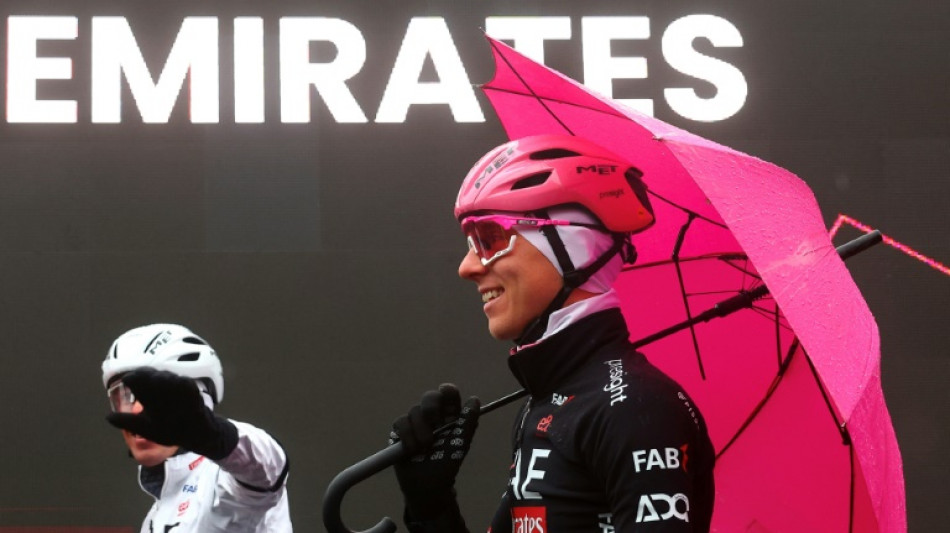

Hazardous weather sparks chaos and rider anger at Giro 16th stage
The Giro d'Italia's 16th stage was twice shortened due to hazardous weather conditions, including heavy snowfall, on Tuesday after a rider rebellion against organisers who pushed for a full day's racing.
Riders were supposed to begin the 202-kilometre mountain stage between Livigno and Santa Cristina Val Gardena at 11:20am (0920 GMT) but plans were changed after hours of discussion, confusion and anger within the peloton.
Giro organisers RCS eventually announced that the stage would get underway in Laas, 118.4km from the finish line, at 2.25pm (1225 GMT).
That was second change of the day. Shortly before noon in Italy RCS had said that riders were supposed to start a parade around snow-covered Livigno at 11.50am (0950 GMT) before heading to Prati allo Stelvio, 121km from the finish, where the stage proper would get underway at around 2:00pm (1200 GMT).
But there was no one at the start line and RCS's insistence on a start in Livigno, where local authorities had paid to have a Giro stage start in the ski resort, drew a livid reaction from Ben O'Connor, who called the Giro "one of the worst organised races".
"This would never happen in 99 percent of other situations," Australian O'Connor, who is fourth in the general classification, told Eurosport.
"It's just a shame that it is 2024 and you have dinosaurs who really don't see the human side of things."
French climber Valentin Paret-Peintre said that the peloton would only ride the full stage if RCS's race chiefs "drive it in a convertible", while two-time world champion Julian Alaphilippe joked that he would spend the day "making snowmen".
On Monday, RCS had put in place the second of three potential protocols for stage 16, which had already lost the iconic Stelvio pass due to the risk of avalanche and had been threatened for days by dangerous weather.
The protocol provided that in the event of bad weather the riders could change clothes at the summit of Giogo di Santa Maria, at an altitude of 2,498 metres (8,195 feet), where the race would be neutralised for three minutes.
It was a measure that was blasted on Tuesday morning by the president of the professional cyclists association (CPA), Adam Hansen.
"Riders aim to compete and entertain, not to face a situation where they must stop at an altitude of 2,498 metres in a car park, change clothes in two-degree weather with a high likelihood of snow, and then continue racing," wrote Hansen.
"Such conditions pose significant health risks."
Difficult weather and sometimes bitter disputes about whether or not certain stages should take place are a regular feature of the Giro.
Tadej Pogacar leads by over six minutes the general classification of the Giro, one of cycling's three Grand Tours.
J.P.Hofmann--MP




